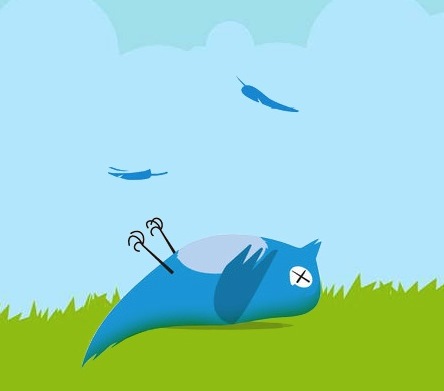
Photo credit: Promodo
Live Twitter chats are an increasingly popular social media marketing tool. Yet, more than a few organizations have seen their chats flop. Some chats have gone wildly awry.
When Fifty Shades of Grey author E.L. James held a Twitter chat, many antagonistic questioners seized the #AskELJames hashtag to mock her writing style and story topics. Some of the questions were: “Do you get paid per adjective?” “Did you ever consider using a thesaurus, or did that sound too much like hard work?” and “Which do you hate more, women or the English language?
Some questions were amusing at the author’s expense. “How many roads must a man walk down before he devotes an entire room in his apartment to the abuse of young women?”
A few users expressed some sympathy for James and her PR advisers. One tweeted: “Somewhere, there is a PR/social exec frantically searching the #AskELJames tag for questions she can *actually* answer.”
Another asked: “I’d rather #AskELJames’s publicist why they thought this was going to be a good idea.”
PR Pundits Critique Twitter Chats
PR and social media marketing publications and pundits soon used the hashtag to comment on the perils of Twitter chats in general. Proponents say they allow companies and celebrities to directly interact with customers and fans and can provide publicity benefits. However, unlike a formal press conference, they lack any controls on who can comment or ask a question. The lack of control over questioners makes such social media sessions completely unpredictable and extremely risky.
Author James wasn’t the first – and probably won’t be the last – person to lose control of Twitter Q&A sessions.
Singer Robin Thicke was buried under a barrage of criticisms in his #AskThicke Q&A session. Observers said his PR team should have foreseen the attacks on the singer, known for his misogynistic lyrics.
The Chicago Transit Authority prompted more disparaging remarks than legitimate questions with its #AskVentra session. Ventra produces its transit card.
Given the number of recent Twitter chat disasters, some observers contend that such open social media sessions no longer work for celebrities and well-known brands. The rich and famous should simply avoid them altogether, they say.
Others argue that, while not ideal for controversial celebrities, the forums can provide PR benefits to businesses.
One example of successful social media chat: Facebook CEO Mark Zuckerberg conducted an open one-hour Q&A on his page on Facebook. The content didn’t go off track (though it did range over many different topics) and the chat was so popular that it caused technical glitches on the network. One question from physicist Stephen Hawking attracted 6,000 likes.
There was also a question from Arnold Schwarzenegger. Because of Zuckerberg’s frank, entertaining, visionary answers to some provocative questions, the session produced interesting insights into Facebook’s business plan and enormous amounts of positive publicity. (Put a query into Google News for “Zuckerberg AND Q&A”.)
How to Keep a Twitter Chat on Track
Here are some tips on how keeping a Twitter chat on track.
Create your own questions. Preparing your own questions beforehand and asking colleagues and business contacts (ideally influencers) to tweet them during the session can help push the conversation back to its intended topic. Including some semi-difficult questions can help keep the audience interested.
Get PR help. A PR pro at the celebrity’s or executive’s side during the session can help them respond to questions, protect the brand’s image, and redirect the conversation.
Stay cool. Remaining calm can prevent any angry responses to insulting remarks that may damage your image. Instead, answering unkind remarks with a sense of humor can gain sympathy. Again, an experienced PR pro can help keep the celebrity or business leader calm and maintain a sense of humor.
Bottom Line: Numerous Twitter chats of celebrities and well-known brands have failed, prompting some to question the value of the open Q&A session. Still, others praise the forums can marketing and outreach tools.
What’s your experience with Twitter chats? Please comment below.
William J. Comcowich founded and served as CEO of CyberAlert LLC, the predecessor of Glean.info. He is currently serving as Interim CEO and member of the Board of Directors. Glean.info provides customized media monitoring, media measurement and analytics solutions across all types of traditional and social media.




